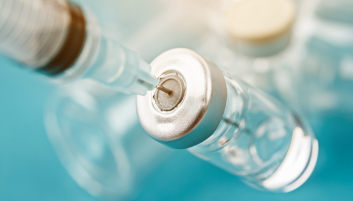US scientists developing single-dose vaccines for HIV, Covid
By IANS | Updated: August 28, 2025 16:45 IST2025-08-28T16:44:43+5:302025-08-28T16:45:19+5:30
New Delhi, Aug 28 A team of scientists in the US is working to develop vaccines that can ...

US scientists developing single-dose vaccines for HIV, Covid
New Delhi, Aug 28 A team of scientists in the US is working to develop vaccines that can protect against HIV, Covid, and potentially other diseases, with a single dose.
The team from MIT and the Scripps Research Institute treated mice with a vaccine that combines two different adjuvants, materials that help stimulate the immune system. They found that the combination helped generate more robust immune responses.
The dual-adjuvant vaccine was found to accumulate in the lymph nodes, where white blood cells known as B cells encounter antigens and undergo rapid mutations that generate new antibodies.
The vaccine’s antigens remained there for up to a month -- allowing the immune system to build up a much greater number and diversity of antibodies against the HIV protein than the vaccine given alone or with one adjuvant.
According to MIT professor J. Christopher Love, the approach may mimic what occurs during a natural infection and could lead to an immune response so strong and broad that vaccines only need to be given once.
“It offers the opportunity to engineer new formulations for these types of vaccines across a wide range of different diseases, such as influenza, SARS-CoV-2, or other pandemic outbreaks,” Love said.
Separately, Russia’s Covid-19 vaccine maker is also set to develop an mRNA-based HIV vaccine, RIA Novosti, the Russian Information Agency, said.
The vaccine to be developed by Gamaleya Center in Moscow, which will trigger an immune response against the AIDS causing virus, could be ready in around two years.
The much-anticipated HIV vaccine is based on mRNA technology, the head of the institute’s epidemiology department, Vladimir Gushchin, told RIA Novosti on Wednesday.
“We are currently at the stage of creating the first antigens that will generate a broadly neutralising immune response. The success of the vaccine will depend on whether the immunogen we use can trigger a response capable of protecting against all variants,” said Vladimir Gushchin, epidemiologist at the Centre.
The Gamaleya Center also developed Sputnik V, one of the world’s first Covid-19 vaccines, which was rolled out in August 2020. The shot, showing up to 97.8 per cent efficacy with no serious side effects, has been approved in nearly 70 countries.
Disclaimer: This post has been auto-published from an agency feed without any modifications to the text and has not been reviewed by an editor
Open in app